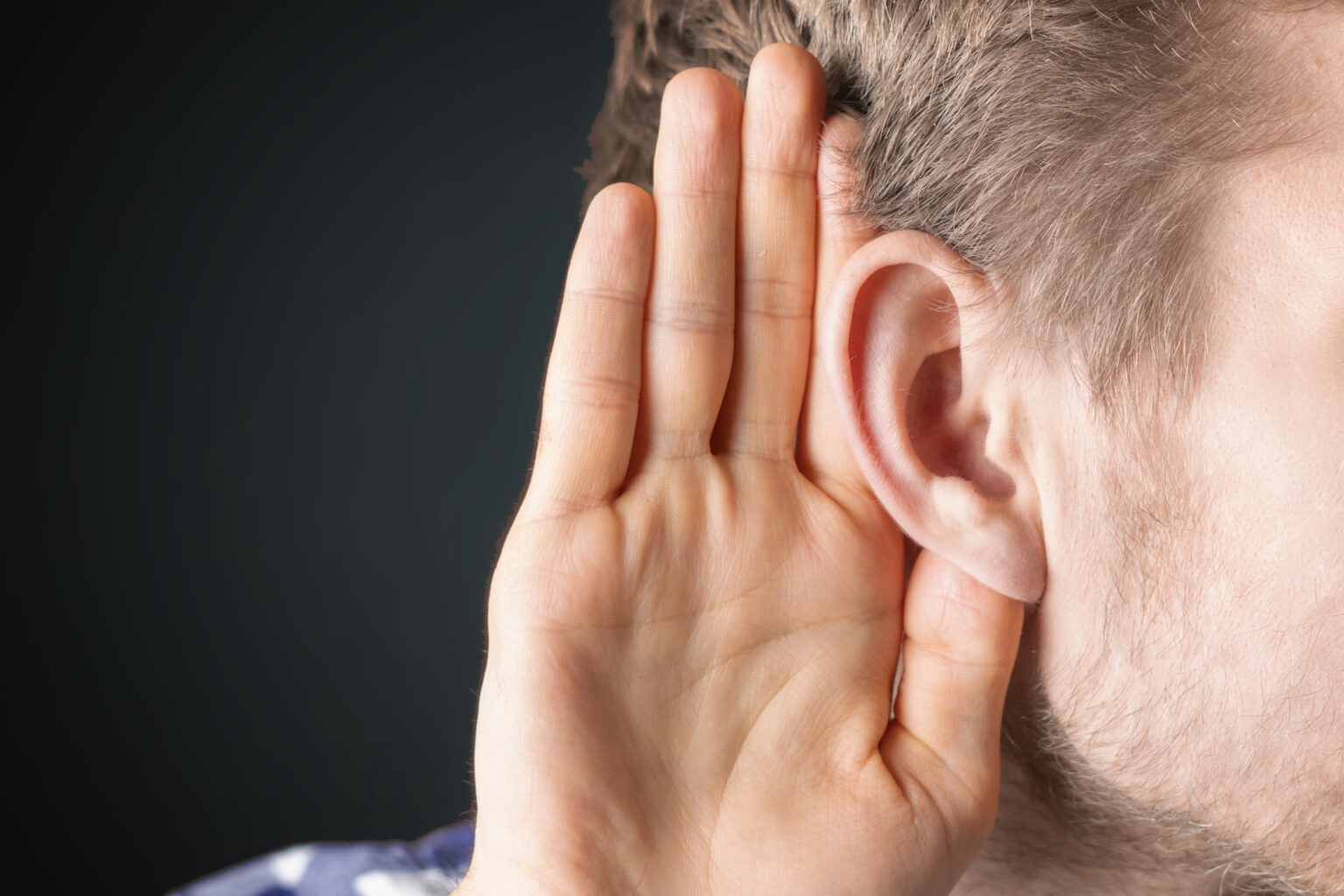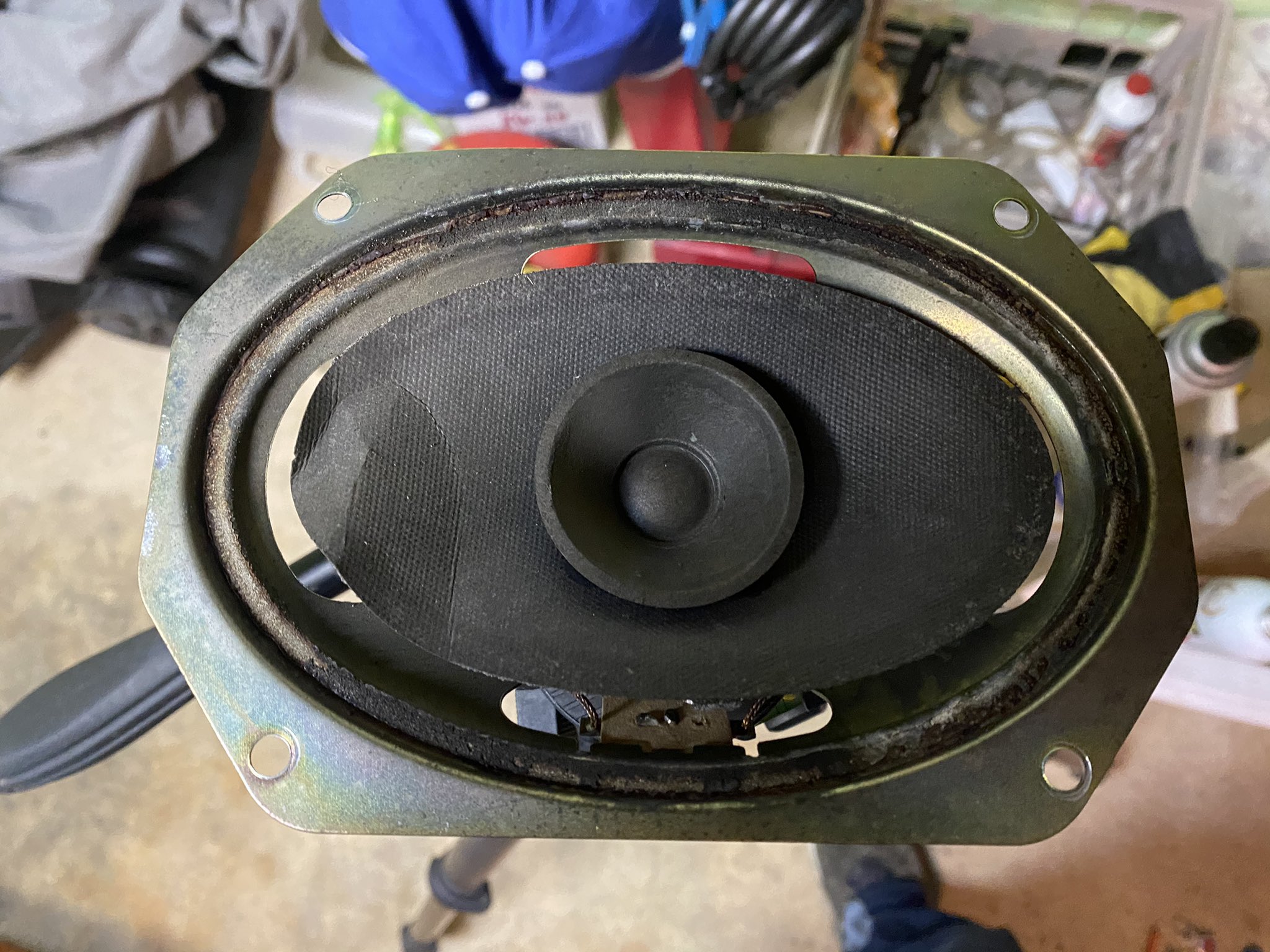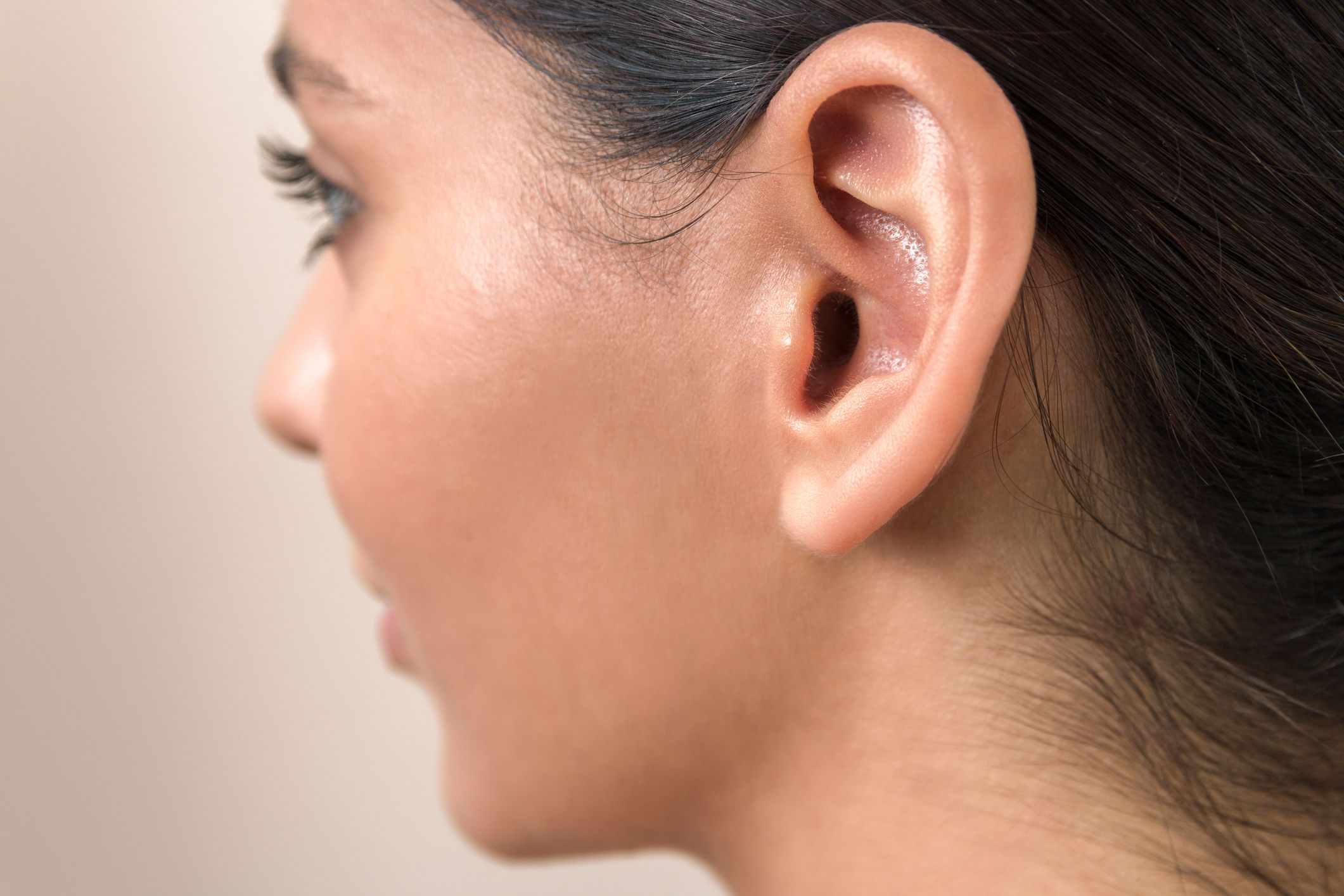Home>Production & Technology>Sound>What Does Ringing In The Ears Sound Like


Sound
What Does Ringing In The Ears Sound Like
Published: December 18, 2023
Discover what the sensation of ringing in the ears actually sounds like! Gain insights into the different types of sounds that can be experienced.
(Many of the links in this article redirect to a specific reviewed product. Your purchase of these products through affiliate links helps to generate commission for AudioLover.com, at no extra cost. Learn more)
Table of Contents
Introduction
Tinnitus, commonly referred to as “ringing in the ears,” is a condition characterized by the perception of sound in the absence of any external stimuli. While the word “ringing” implies a specific auditory experience, the sounds associated with tinnitus can actually vary widely from person to person.
Tinnitus affects millions of people worldwide and can be a temporary or chronic condition. It can manifest as a high-pitched ringing, buzzing, hissing, clicking, or even roaring sound. The intensity and frequency of these sounds can also vary, with some individuals experiencing constant noise, while others may only notice it intermittently.
The causes of tinnitus are diverse and can range from exposure to loud noises, age-related hearing loss, earwax blockages, to underlying health conditions such as Ménière’s disease or temporomandibular joint (TMJ) disorders. Regardless of the underlying cause, living with tinnitus can be challenging, as the persistent sound can disrupt concentration, sleep, and overall quality of life.
Understanding the different sounds associated with tinnitus is crucial in managing the condition effectively. While the exact mechanisms behind tinnitus are still being studied, healthcare professionals and individuals suffering from tinnitus have used various descriptions to portray the sounds they perceive.
In this article, we will explore the common descriptions of ringing in the ears and other sounds associated with tinnitus. By gaining a deeper understanding of these sounds, it may help individuals with tinnitus feel validated, find coping mechanisms, and seek appropriate treatment options to alleviate their symptoms.
Definition of Tinnitus
Tinnitus is a condition characterized by the perception of sound in the absence of any external source. It is often described as a ringing, buzzing, hissing, or roaring sound that can be heard in one or both ears. The sounds can range from soft and intermittent to loud and continuous, and their intensity can vary from person to person.
While tinnitus is commonly referred to as “ringing in the ears,” it’s important to note that the perception of sound can be different for each individual. Some people may experience a high-pitched ringing, while others may hear a low-frequency humming or a combination of sounds. For some, the sound may be constant, while for others, it may come and go.
It’s crucial to differentiate between objective and subjective tinnitus. Objective tinnitus refers to sounds that can be heard by both the person with tinnitus and others, such as a pulsating sound related to blood flow or muscle contractions. On the other hand, subjective tinnitus is solely perceived by the person with tinnitus and cannot be detected by an outside observer.
Tinnitus can be classified as acute or chronic. Acute tinnitus is usually temporary and lasts for a short period of time, often as a result of exposure to loud noises, ear infections, or certain medications. Chronic tinnitus, however, persists for more than six months and is often associated with underlying health conditions, such as age-related hearing loss, ear damage, or neurological disorders.
It’s important to note that tinnitus itself is not a disease but rather a symptom of an underlying issue. Therefore, it is essential to identify and address the underlying cause, as treating the root cause may help alleviate or reduce the severity of tinnitus symptoms.
Causes of Tinnitus
Tinnitus can have various causes, and identifying the underlying factors can help in managing and treating the condition effectively. While the exact physiological mechanisms of tinnitus are still not fully understood, several common causes have been identified. Here are some of the main causes of tinnitus:
- Hearing Loss: Age-related hearing loss, exposure to loud noises over time, or damage to the ear structures can lead to tinnitus. When the auditory system is compromised, the brain attempts to compensate for the lack of external sound by creating its own internal noise.
- Earwax Blockage: Excessive buildup of earwax can block the ear canal, leading to hearing difficulties and tinnitus symptoms. Removal of the earwax blockage can often alleviate the ringing or buzzing sounds.
- Trauma to the Ear or Head: Head injuries or trauma to the ear can cause damage to the auditory system, resulting in tinnitus. This can include physical trauma from accidents, loud explosions, or even barotrauma caused by rapid changes in air pressure.
- Medications: Certain medications, such as nonsteroidal anti-inflammatory drugs (NSAIDs), antibiotics, diuretics, and some cancer medications, have been linked to tinnitus as a potential side effect. If you suspect your medications are contributing to your tinnitus, consult your healthcare provider.
- Underlying Health Conditions: Tinnitus can be associated with various health conditions, including Ménière’s disease (which affects the inner ear and causes balance problems), temporomandibular joint (TMJ) disorders, high blood pressure, and cardiovascular disease.
- Stress and Anxiety: Mental health factors like stress, anxiety, and depression can exacerbate tinnitus symptoms. This is believed to be due to the connection between the auditory system and the limbic system, which regulates emotions.
It’s worth mentioning that in some cases, the exact cause of tinnitus may not be identified despite thorough medical evaluations. This is known as idiopathic tinnitus.
In order to determine the specific cause of tinnitus and develop an appropriate treatment plan, it is recommended to consult with a healthcare professional, such as an audiologist or an ear, nose, and throat (ENT) specialist.
The Sounds of Tinnitus
Tinnitus is often characterized by a variety of sounds that can differ from person to person. These sounds can range from subtle and barely noticeable to loud and intrusive. While the common perception is that tinnitus sounds like ringing in the ears, it’s important to note that the actual sounds experienced can vary widely.
Here are some of the common sounds associated with tinnitus:
- Ringing: A high-pitched ringing sound is perhaps the most commonly reported type of tinnitus. It can range from a faint background noise to a loud, persistent ring.
- Buzzing: Many individuals describe their tinnitus as a buzzing sound. This can resemble the sound of bees buzzing or the static noise from a malfunctioning electronic device.
- Hissing: Tinnitus may also manifest as a hissing sound similar to the sound of air escaping from a pressurized container or the static noise heard on a radio.
- Clicking: Some individuals with tinnitus experience a rhythmic clicking sound, similar to the sound of a clock ticking or a camera shutter closing and reopening.
- Roaring: Tinnitus can also be perceived as a low-frequency roaring or whooshing sound, resembling the sound of ocean waves or a waterfall.
It’s important to note that the intensity, pitch, and frequency of tinnitus sounds can vary significantly from person to person. Some people may experience multiple sounds simultaneously, while others may primarily hear one dominant sound.
Additionally, the perceived volume of tinnitus can fluctuate throughout the day. Factors such as stress, tiredness, exposure to loud noises, and even certain foods or drinks can influence the intensity of tinnitus sounds.
It’s crucial to remember that everyone’s experience of tinnitus is unique. The sounds described here are general examples, but the actual perception may differ. If you are experiencing any of these sounds or have other tinnitus-related symptoms, it is recommended to consult a healthcare professional for evaluation and guidance.
Common Descriptions of Ringing in the Ears
Ringing in the ears, or tinnitus, can be described in various ways by individuals experiencing this condition. While the perception of tinnitus sounds can differ from person to person, there are some common descriptions that people use to convey their experiences. Understanding these descriptions can help individuals with tinnitus feel validated and find a sense of connection with others who share similar symptoms.
Here are some commonly used descriptions of ringing in the ears:
- High-Pitched Ringing: Many people describe their tinnitus as a high-pitched ringing sound that is similar to the sound of a telephone ringing. This description is often used to convey a sharp, piercing, or shrill tone.
- Low-Frequency Humming: Some individuals with tinnitus perceive their ringing in the ears as a low-frequency humming or a deep, constant drone. This description is often likened to the sound of a distant engine or the hum of a refrigerator.
- Pulsating or Throbbing: Tinnitus can also be experienced as a rhythmic pulsating or throbbing sensation, similar to a heartbeat. This description is often used to convey the sensation of the sound syncing with one’s pulse.
- Cricket Chirping: A common description for tinnitus sounds is the sound of crickets chirping. This comparison is often made when the ringing in the ears is perceived as a series of rhythmic and repetitive chirping sounds.
- White Noise: Some individuals describe their tinnitus as a form of white noise, likening it to the sound of static on a television or the ocean waves. This description is used to convey a constant, continuous background noise that is unchanging in pitch.
It’s important to note that these descriptions are subjective and may not fully capture the complete range of experiences with tinnitus. Additionally, individuals may use their own unique analogies or descriptions to convey their personal perception of the sounds they hear.
If you are experiencing ringing in the ears or a similar auditory sensation, reach out to a healthcare professional for a proper evaluation and guidance. They can help identify the underlying cause of your tinnitus and provide appropriate treatment options.
Other Sounds Associated with Tinnitus
While ringing in the ears is a common description of tinnitus, it’s important to recognize that there are other sounds that individuals may experience in conjunction with this condition. Tinnitus can manifest in various ways, and the sounds described by those affected can be diverse and unique to each person.
Here are some other sounds associated with tinnitus:
- Buzzing: Alongside ringing, buzzing is another prevalent sound reported by individuals with tinnitus. This buzzing sensation can range from a faint, subtle noise to a pronounced, loud sound in the ears.
- Hissing: Some individuals may perceive their tinnitus as a hissing sound, similar to the sound of air escaping or a steady stream of steam. This hissing sensation can vary in intensity and pitch.
- Clicking: Tinnitus can be experienced as a series of clicks or sharp, rapid popping sounds. These clicks can be rhythmic in nature and may occur intermittently or continuously.
- Roaring: Another sound associated with tinnitus is a roaring or rushing noise. This can resemble the sound of ocean waves, a waterfall, or even a distant gust of wind. The volume and intensity of the roaring sound can vary from person to person.
- Music or Melodies: In rare cases, individuals with tinnitus may perceive musical tones or melodies. This can range from simple tunes to more complex compositions, often referred to as musical ear syndrome.
- Whistling: Some people with tinnitus describe the sound as a whistling noise, similar to the sound produced by blowing air through pursed lips or a high-pitched whistle.
It is important to acknowledge that these descriptions are just a few examples, and each person’s experience with tinnitus can be unique. Some individuals may even experience a combination of different sounds simultaneously, making the perception of tinnitus highly individualized.
If you are experiencing any of these sounds or other auditory sensations and suspect they may be related to tinnitus, it is advisable to consult with a healthcare professional. They can help assess your symptoms, identify the underlying cause, and provide guidance on managing and treating your tinnitus.
Impact of Tinnitus on Daily Life
Tinnitus can have a significant impact on the daily lives of those who experience it. While the physical symptoms of tinnitus, such as the perception of sounds in the ears, can be challenging to manage, the effects extend beyond just the auditory sensation. Here are some ways in which tinnitus can impact daily life:
- Concentration and Focus: Tinnitus can make it difficult to concentrate and focus on tasks, especially those that require quiet and attention to detail. The constant presence of the ringing or buzzing sound can be distracting and disruptive.
- Sleep Disturbances: The sounds of tinnitus can be particularly bothersome at night, making it challenging to fall asleep or stay asleep. Sleep disturbances can lead to fatigue, decreased energy levels, and difficulties in maintaining productivity and overall well-being.
- Emotional Well-being: Living with tinnitus can evoke a range of emotions, including frustration, irritability, and anxiety. The persistent nature of the sound can lead to increased stress levels and impact emotional well-being, potentially leading to mood swings and feelings of depression.
- Communication Challenges: Tinnitus can interfere with communication, especially in noisy environments. The background noise of tinnitus can make it harder to hear and understand conversations, which can lead to feelings of social isolation or withdrawal.
- Reduced Quality of Life: Tinnitus can impact various aspects of one’s quality of life. It may limit participation in activities, such as attending concerts or engaging in quiet hobbies. It can also affect relationships, especially if communication difficulties arise due to tinnitus-related hearing issues.
- Impact on Mental Health: The constant presence of tinnitus can take a toll on mental health. For some individuals, tinnitus may contribute to feelings of helplessness, frustration, and even depression, affecting their overall mental well-being.
It’s important for individuals with tinnitus to seek support and understanding from healthcare professionals, friends, and family members. By discussing the impact of tinnitus and exploring coping mechanisms, individuals can learn to manage its effects on their daily lives and overall well-being.
While there may not be a cure for tinnitus, various strategies and treatments can help alleviate symptoms and improve quality of life. Seeking professional guidance is essential in identifying personalized management techniques and exploring appropriate treatment options.
Coping Mechanisms for Tinnitus
Coping with tinnitus can be challenging, but there are several strategies and techniques that can help individuals manage and minimize its impact on daily life. While these coping mechanisms may not completely eliminate the perception of tinnitus, they can help individuals find relief and improve their overall well-being. Here are some effective coping mechanisms for tinnitus:
- Sound Therapy: Sound therapy involves using external sounds to mask or distract from the perceived tinnitus sounds. This can be achieved through techniques such as listening to white noise, nature sounds, or calming music to create a more soothing auditory environment.
- Relaxation Techniques: Engaging in relaxation techniques, such as deep breathing exercises, meditation, or yoga, can help reduce stress and promote a sense of calm. These practices can indirectly alleviate the impact of tinnitus by reducing anxiety and promoting overall relaxation.
- Support Groups: Joining a tinnitus support group or connecting with others who have similar experiences can be highly beneficial. Validating one’s feelings and sharing coping strategies with others who understand can provide emotional support and a sense of community.
- Healthy Lifestyle Choices: Maintaining a healthy lifestyle can support overall well-being and potentially alleviate the impact of tinnitus. This includes regular exercise, balanced nutrition, adequate sleep, and minimizing or avoiding triggers such as caffeine, nicotine, and loud noises.
- Stress Management: Managing stress is crucial in minimizing the impact of tinnitus. Incorporating stress management techniques, such as practicing mindfulness, engaging in hobbies, or seeking professional therapy, can help reduce stress levels and promote a more positive mindset.
- Tinnitus Retraining Therapy (TRT): TRT is a specialized therapy that combines sound therapy and counseling to help individuals reframe their perception of tinnitus. It aims to enhance habituation to the sound, reducing its perceived bothersomeness over time.
- Masking Devices: Masking devices are small electronic devices that emit a low-level noise designed to mask or cover up the tinnitus sound. These devices can be worn in the ear or used as bedside sound machines to provide relief during sleep.
It’s important to remember that what works for one person may not work for another, as tinnitus experiences can vary. Consulting with a healthcare professional, such as an audiologist or an ENT specialist, is vital in developing a personalized coping strategy and identifying the most appropriate treatment options for managing tinnitus.
Treatment Options for Tinnitus
Tinnitus treatment aims to alleviate symptoms and improve the quality of life for individuals experiencing this condition. While there is currently no known cure for tinnitus, several treatment options can help manage and minimize its impact. The choice of treatment depends on the underlying cause, severity, and individual preferences. Here are some common treatment options for tinnitus:
- Hearing Aids: For individuals with tinnitus and hearing loss, hearing aids can be beneficial. They amplify external sounds, making them easier to hear and reducing the contrast between the perceived tinnitus sound and the surrounding environment.
- Tinnitus Retraining Therapy (TRT): TRT combines sound therapy and counseling to help individuals better tolerate and manage tinnitus. It aims to retrain the brain’s response to tinnitus, reducing its perceived impact over time.
- Cognitive Behavioral Therapy (CBT): CBT is a form of therapy that helps individuals identify and modify negative thoughts and behaviors associated with tinnitus. It can provide coping strategies to reduce the emotional distress and improve the overall management of tinnitus.
- Medications: In some cases, medications such as antidepressants or certain anticonvulsants may be prescribed to alleviate the symptoms of tinnitus. These medications target the associated anxiety or depression rather than directly treating the tinnitus itself.
- Tinnitus Maskers: Masking devices or white noise generators can help mask or partially cover up the perception of tinnitus sounds. These devices emit a constant low-level sound that helps divert attention away from tinnitus and promote relaxation.
- Acoustic Neural Stimulation (ANS): ANS is a relatively new treatment option that uses specific sound patterns delivered through earphones to stimulate the auditory system. This therapy aims to reduce the perception of tinnitus and promote neural plasticity.
- Alternative Therapies: Some individuals find relief from tinnitus through alternative therapies such as acupuncture, hypnosis, or herbal supplements. While the effectiveness of these treatments may vary, they can be explored under the guidance of healthcare professionals.
It’s important to consult with a healthcare professional specializing in tinnitus to determine the most suitable treatment options based on individual circumstances. They will conduct a thorough evaluation, consider underlying causes, and tailor a treatment plan that addresses the specific needs and goals of each individual.
While tinnitus may not completely disappear with treatment, appropriate management strategies can help minimize its impact, improve auditory well-being, and enhance overall quality of life.
Conclusion
Tinnitus, often referred to as “ringing in the ears,” is a condition characterized by the perception of sound in the absence of any external stimuli. While the exact sounds experienced can vary from person to person, tinnitus is commonly described as ringing, buzzing, hissing, clicking, or even roaring sounds. It can be caused by various factors, including hearing loss, earwax blockages, head trauma, medications, and underlying health conditions.
Tinnitus can have a significant impact on daily life, affecting concentration, sleep, emotional well-being, and overall quality of life. However, various coping mechanisms can be employed to manage its effects. These include sound therapy, relaxation techniques, support groups, healthy lifestyle choices, and stress management strategies.
While there is no known cure for tinnitus, there are treatment options available to help alleviate symptoms and improve quality of life. These include hearing aids, tinnitus retraining therapy (TRT), cognitive behavioral therapy (CBT), medications, tinnitus maskers, acoustic neural stimulation (ANS), and alternative therapies.
It is important for those experiencing tinnitus to seek support from healthcare professionals who can provide guidance, tailor treatment plans, and offer strategies to manage the condition effectively. Each person’s experience with tinnitus is unique, and finding the most suitable approach may require some trial and error.
By understanding the different sounds associated with tinnitus, exploring coping mechanisms, and seeking appropriate treatment, individuals with tinnitus can find a sense of relief and regain control over their lives. Remember, while tinnitus may be a permanent condition, its impact can be minimized with the help of medical professionals and a proactive approach to self-care.











